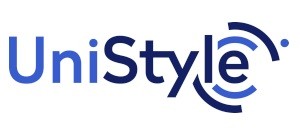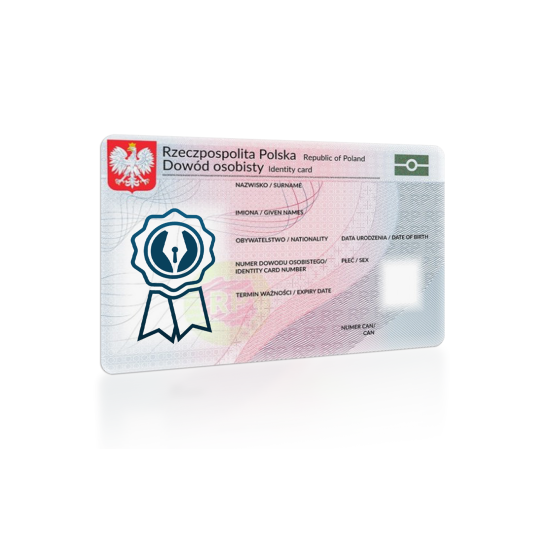QUALIFIED ELECTRONIC SIGNATURE stored on eID (Polish Citizens only)
139 tax excl.
Qualified Electronic Signature on eID (Polish Citizens only).
Certificates may be issued on the territory of countries:: Poland, Ireland, Ukraine.
Qualified certificates (e-signatures) remain valid throughout the European Union.
Qualified electronic signature in an eID card is a technologically advanced system that enables electronic identification of a person and verifies the authenticity and integrity of data. It is a special type of electronic signature that carries legal validity and is recognized on par with a traditional handwritten signature.
An eID card is an identity document that has been transferred into electronic form. When using a qualified electronic signature in an eID card, the cardholder can make electronic signatures that are legally binding and recognized by public administration authorities and other entities.
The qualified electronic signature in an eID card enables:
-
Electronic filing of tax declarations to Tax Offices: Signatures allow secure electronic submission of tax declarations to Tax Offices. This enables individuals and businesses to conveniently and quickly transmit their tax data electronically in compliance with legal regulations.
-
Electronic filing of reports to the eKRS (electronic National Court Register): Signatures also enable electronic filing of reports to the eKRS, the electronic National Court Register. Required documents such as annual financial reports or other reports can be submitted electronically using a qualified signature. This significantly facilitates and expedites the process of reporting data to the register.
-
Signing documents related to the Uniform European Single Procurement Document (ESPD): The ESPD is a system that allows for the submission of offers and execution of public procurement contracts in Europe. Signatures enable the secure signing of electronic documents related to this process. This allows businesses to participate in international tenders and orders, meeting the requirements for the authenticity and integrity of signed documents.
-
Communication within the ePUAP (Electronic Platform of Public Administration Services): The ePUAP is a platform that enables electronic communication with public offices and institutions. Using signatures, documents, applications, or other information can be securely and legally transmitted to various public administration bodies through the ePUAP platform. This shortens the time and eliminates the need for physically delivering documents.
-
Signing the Standard Audit File (SAF-T): The Standard Audit File (SAF-T) is an electronic report containing tax-related data that businesses are required to submit to tax authorities. Signatures enable the legal and secure signing of these files, ensuring the authenticity and integrity of the transmitted data.
-
Participation in electronic auctions and tenders: Signatures facilitate participation in electronic auctions and tenders. This allows businesses to submit electronic bids, signing them with a qualified signature. This speeds up the bidding process and procurement of goods or services by public institutions or enterprises.
-
Conclusion of civil-law contracts in electronic form: Signatures also enable the conclusion of civil-law contracts in electronic form. They allow for the remote signing of contracts, eliminating the need for physical meetings between parties. This is particularly useful for commercial transactions or contracts entered into by individuals and businesses.
The main benefits of using a qualified electronic signature in an eID card are:
-
Authenticity and integrity of electronic documents: A qualified electronic signature ensures that electronic documents have not been altered after being signed. This allows for the confirmation of the authenticity and integrity of the documents.
-
Legal validity: A qualified electronic signature holds the same legal value as a traditional handwritten signature. This enables the submission of legally binding declarations, the formation of contracts, and the execution of other legal actions in electronic form.
-
Convenience and time savings: The use of a qualified electronic signature in an eID card eliminates the need for printing, scanning, and sending paper documents. This saves time and costs associated with traditional document processing methods.
-
Security: A qualified electronic signature is based on advanced cryptographic technologies that provide a high level of security. It protects the confidentiality and integrity of the signed documents.
The set allows for signing in various formats, including:
- XAdES-BES
- XAdES-T
- PAdES-BES
- PAdES-T
It utilizes the SHA256 (SHA2) algorithm.
Data sheet
- Issuer - Certificate Authority
- Eurocert Qualified Center
- Personal data verification method
- direct meeting with the verifier



